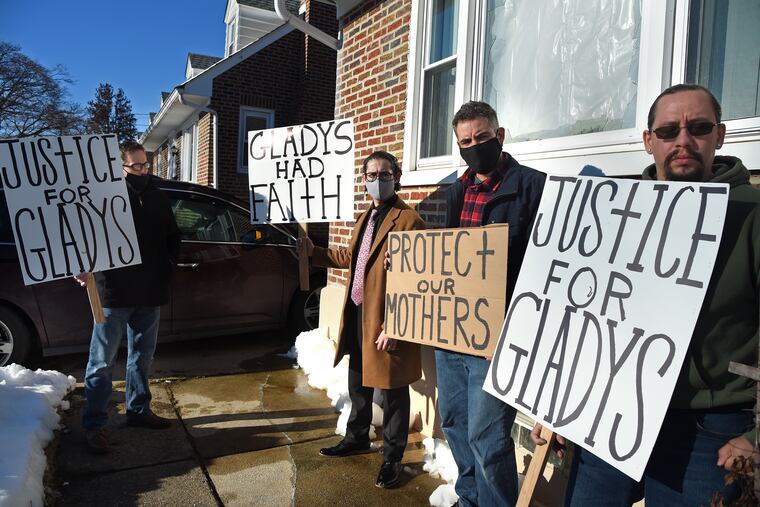Philly is failing to protect domestic violence victims | Opinion
The current system is set up so that victims of domestic violence are treated like criminals and their abusers are given power.

Gladys Coriano contacted the police five times in the past three months because of abuse, stalking, and harassment at the hands of her ex-husband. On Jan. 10, Adriano Coriano pled guilty to violating the protection order Gladys was finally able to obtain. That should have meant two years in prison. Instead, he was offered six months of probation despite there being an active warrant out for him related to an October attack on Gladys. Just four days later, on Jan. 14, police requested the third warrant to go after the man stalking and harassing Gladys. The District Attorney’s Office responded on Jan. 20, saying they need more information to issue a warrant for his arrest, but by then Gladys was already dead. Philadelphia authorities had numerous chances to save the life of Gladys Coriano, and they failed her.
Despite a 30% increase in calls to domestic violence hotlines during the pandemic, the Philadelphia District Attorney’s Office is allowing known perpetrators of domestic violence to be on the streets and not offering the victims very much support.
Sure, you can call a hotline, but then what? Go to a shelter during a pandemic? Why does this system for domestic violence demand the victim of a crime be forced from their home by a person assaulting them?
» READ MORE: Ex-husband is charged in the slaying of Northeast woman
The current system is set up so that victims of domestic violence are treated like criminals and their abusers are given power. During the pandemic, if you are able to file a protection order, the case could get postponed indefinitely. Those who work with survivors of domestic violence, and have tried to help those who have been murdered, know that when a victim is leaving an abuser, it is the most dangerous time for that victim. The pandemic has revealed that the places victims of domestic violence are told to go are equally unsafe.
Unfortunately, the lack of services for survivors of domestic violence is old news. Fortunately, more high-profile victims of abuse, like FKA Twigs and Evan Rachel Wood, are coming forward and taking a lead in changing the conversation. The entire conversation about domestic violence and available resources for those facing this must change.
Instead of entertaining questions that focus on the actions of the victims and survivors, the conversation must shift to accountability for the crimes perpetrated. No one should be asking why women don’t leave abusers. The pandemic has made the absurdity of that question clearer. Why don’t we leave? Where would we go? When we try to leave, we are risking our lives, and we know there are not many resources available to help us. When we try to utilize services available, they are insufficient, and we are putting ourselves at greater risk.
The question needs to be posed to abusers: Why do you torture people? Why do you continue to stalk, harass, and violate people? Abusers need to be asked: Why do you stay?
» READ MORE: Authorities investigate their handling of abuse complaints against ex-husband of murdered Northeast woman
Philadelphia has over 20 diversion programs for individuals who have perpetrated a crime. These same kinds of services do not exist for people who have had a crime perpetrated against them. Unlike the services for those who have committed crimes, victims of crime do not get help with job skills or career placement. Their employers are not counseled on how to provide a decent environment to mitigate trauma. Victims of crime get two weeks off from work, despite the kind of crime they experience, and they are expected to get back to work. There are not substance abuse programs offered to victims. While there is counseling, at some of the locations there is a waitlist over a year long to speak with someone.
Survivors of abuse do not need to be placed in shelters; they need support systems that will help them become autonomous human beings. Support with secure housing, career development, job placement, and services that help them overcome traumas. These are some of the kinds of services offered to those who have committed crimes. We are failing survivors, and our justice system lacks equity, when we do not offer survivors of crime supports to rebuild their lives that are at least equal to what is provided to those who have perpetrated crimes. We need to start doing what is right: protecting the victims of crimes, helping the survivors overcome trauma to grow, and holding the perpetrators of crimes accountable while ensuring they get the services they need to change.
Aja Beech is a writer living in Philadelphia, a survivor of domestic violence, and a speaker on the Resilient Voices Speakers Bureau for the Pennsylvania Office of Victim Services.